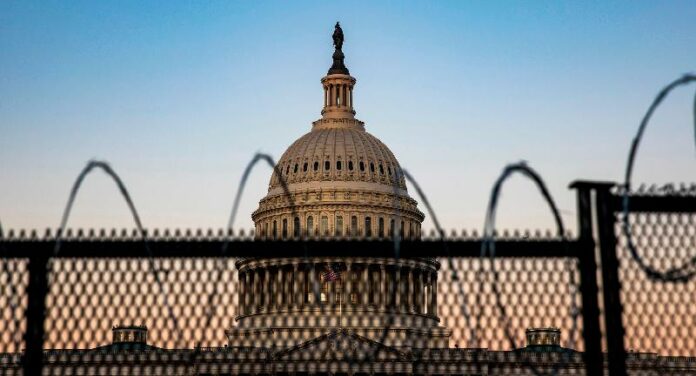The United States Congress is set to start debating a new spending package ahead of the deadline for a federal government shutdown on Friday, the day after Joe Biden will deliver his annual State of the Union address.
As Just The News reports, the Friday deadline is the result of a bill passed last week to slightly extend the two appropriations deadlines, with the first being Friday, March 8th, and the second being two weeks later on Friday, March 22nd.
On Sunday, six appropriations bills for Fiscal Year 2024 were released by House Appropriations Committee Chairwoman Kay Granger (R-Texas) and Senate Appropriations Committee Chairwoman Patty Murray (D-Wash.). The two chairs announced in a press release a single bill that would fund all six bills, called the Consolidated Appropriations Act of 2024. The legislation “funds the six bills at levels consistent with the bipartisan budget agreement and reaffirmed in the topline agreement struck by Leader Schumer and Speaker Johnson in January of this year,” according to the two chairwomen.
“The legislation is expected to be considered first in the House and then later this week by the Senate,” they continued. The “remaining six appropriations bills for fiscal year 2024 are expected to be released in the coming days and be voted on ahead of their expiration on March 22.”
The 1,050-page bill contains 605 pages worth of earmarks from Democrats and Republicans, which was criticized by several Republicans. Senator Rick Scott (R-Fla.) pointed out that one such earmark, from Senate Majority Leader Chuck Schumer (D-N.Y.), would go to “building a new environmental justice center in New York City.”
Senator Mike Lee (R-Utah) denounced the “corrupt government” behind such earmarks, adding that “no Republican should support them” and “no Republican should vote for this bill.”
Congressman Scott Perry (R-Penn.), the former chairman of the House Freedom Caucus, admitted that the bill would not see any reductions in spending, and, if anything, would result in increases in government spending throughout the next fiscal year.
“What we’ve done is just, for the sake of time, trade what we call an omnibus, one of these huge spending bills where everything’s in there, right, they throw everything in there, there’s not the individual bills with individual votes, we usually get that right before December, right before Christmas in December, that’s going to be broken into two smaller bills in March, but it’ll have the same effect,” said Perry. “There will be no reductions in spending, and there will be an increase in spending.”
via amgreatness



